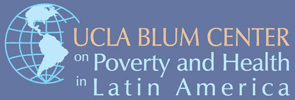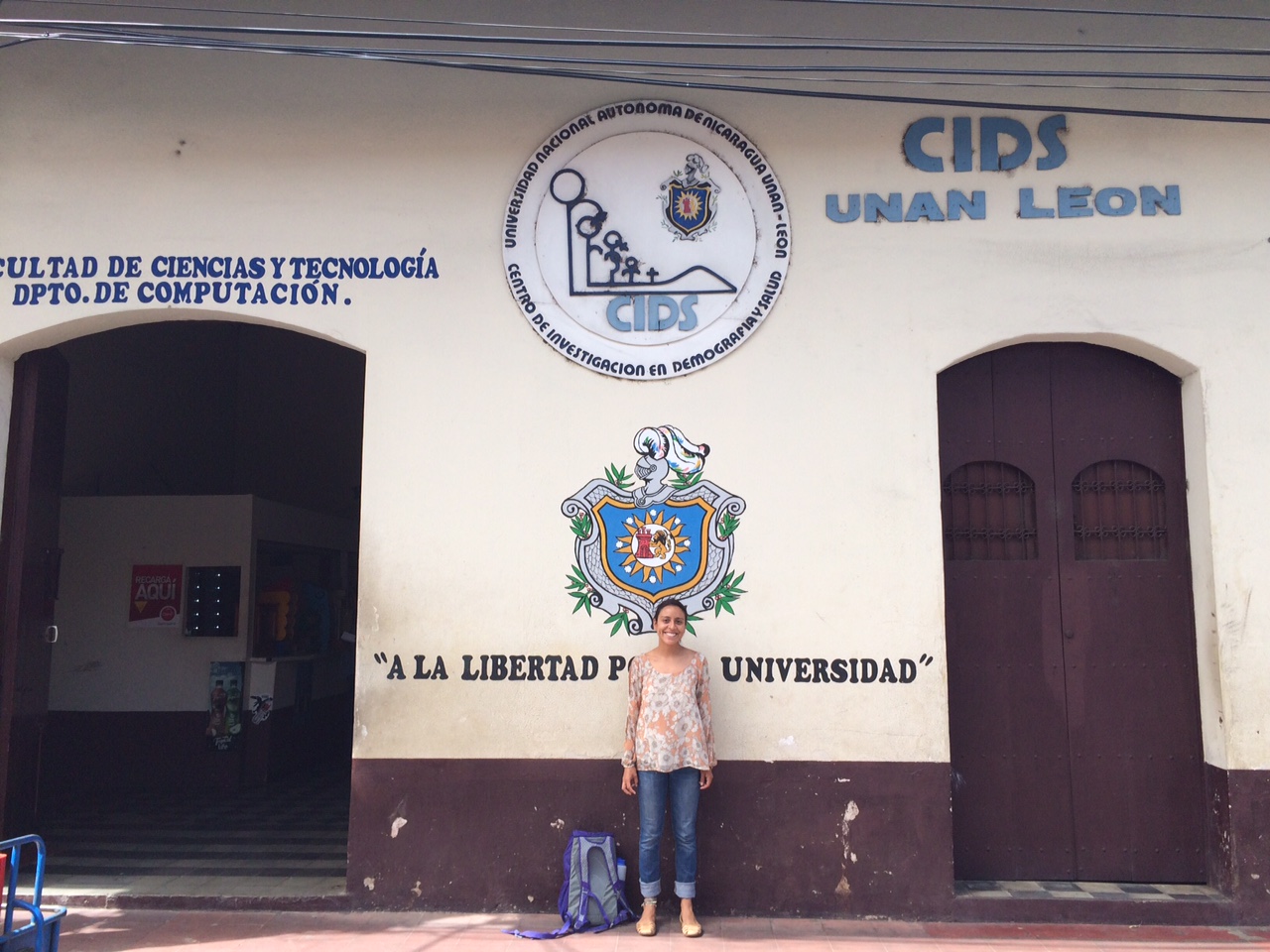Report from the field: 2015 UCLA Blum Summer Scholar Rafaela Rodríguez, in León, Nicaragua
Report from the field: 2015 Blum Summer Scholar Rafaela Rodríguez, in León, Nicaragua
by Rafaela Rodríguez, Master in Social Welfare candidate
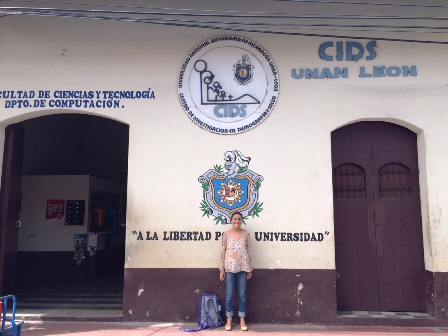 A)
A) 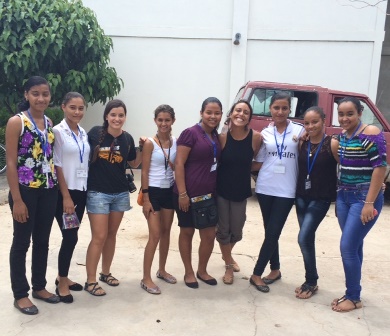 B)
B)
How I ended up in Nicaragua
Nicaragua had never been on my radar as a place I wanted to visit, let alone do research in. Having grown up in Mexico City, I felt that traveling in Latin America would be too comfortable for my adventurous self. However, my current time in Nicaragua has proven me wrong, The culture, although similar to my own has many differences, including a population that had a revolution just 36 years ago in which the Somoza dictatorship ended. This has meant many changes inside the government and a fluctuating system within the health and educational sectors. My passion for working with developing communities and creating positive changes was a key factor that led me to work with the UCLA Blum Center. Research was an intimidating yet exciting challenge for me and the UCLA Blum Center's mission and vision aligned with the way I envisioned myself doing work abroad. Their commitment to positively impact the future health and well-being of Latin-American communities convinced me to take the challenge of doing research and living among a new yet familiar community.
My daily life and learning through the community
I have now been in Nicaragua for seven weeks, a country that has challenged me in many aspects, regardless of my perfect Spanish. I am living in the city of León, a city with revolutionary history and a strong and active student population. I have been working along side The Centro de Investigación and Demografía y Salud (CIDS) with my mentor Dr. Andrés Herrera from The Universidad Nacional Autónoma de Nicaragua in León. He has helped me navigate the health and educational system in Nicaragua in order to conduct informational interviews about current and past programs that work with teenagers and teenage pregnancy. This project is important because Nicaragua has the highest teenage pregnancy rates outside of Sub-Saharan Africa. Therefore, efforts focusing on this epidemic are pivotal in the future of the country.
During a typical week, I start my day by calling my scheduled interviewees and double checking that they remember our appointment. I learned after my first couple of interviews that people here are really busy and that although they are more than willing to talk to you, you are probably not their first priority and you should make sure they remember your agreed meeting. I take notes as fast as I can on my notepad, although I wanted to use my computer to take notes, I found it very impersonal, especially in Latin America. The interviews are usually very enlightening - doctors and teachers are very aware of the issues that surround teenagers and they are all working in some way or another to combat this epidemic. These interviews have not only provided me with vital information regarding the current interventions and programs, they have also helped me see with my own eyes the reality of how the health and educational system work in Nicaragua. I have also observed the programs and inventions that are currently being implemented. These programs range from community-run educational workshops on sexual health, to theater and dance classes to help engage the teenagers. Sitting alongside the teens and engaging them in conversation has helped me understand their own perspective about their daily needs and difficulties.
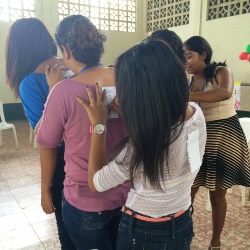 C)
C) 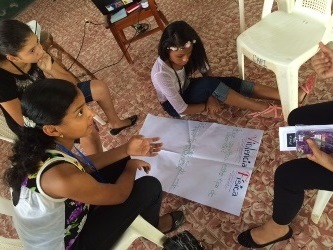 D)
D) 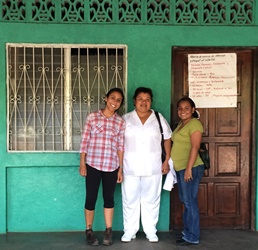 E)
E)
Reflecting
Using public transportation to get to different communities, living in the country and interacting with the community has enriched my research in a way that could not be done without being here. Traveling an average of 4 days a week to other parts of Nicaragua, taking long bus rides in 90 degree weather and 90% humidity has helped me understand the challenges that Nicaraguans face every day.
The focus on teenagers has been empowering, realizing that the work done with this population will have a measurable impact on the future of this country. These teenagers have the power to positively change their nation in the same ways that me and my UCLA peers will in our country. I hope that my interviews with people here and the information gained from them will advise future organizations and stakeholders on future implementation of interventions. Keeping in mind what has been done, what is currently working, and what can be improved to support teenagers is necessary for effective change to occur.
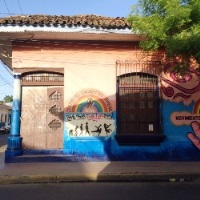 F)
F) 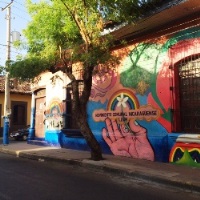 G)
G)  H)
H)  I)
I)
A) Blum Summer Scholar Rafaela Rodríguez at Universidad Nacional Autónoma de Nicaragua, León (UNAN-León)
B) Blum Summer Scholar, Rafaela Rodriguez creates violence awareness among local young girls through workshops and chats in León Nicaragua
C) Workshop for the empowerment of young girls
D) PEACE corps workshop on empowerment and teaching young girls about different kinds of violence
E) Rafaela Rodríguez at rural health clinic
F) Community Center for Youth Development in León Nicaragua
G) Community Center for Youth Development in León Nicaragua
H) Young kids talk show educating the community about their human rights
I) Esteli Local health Center
